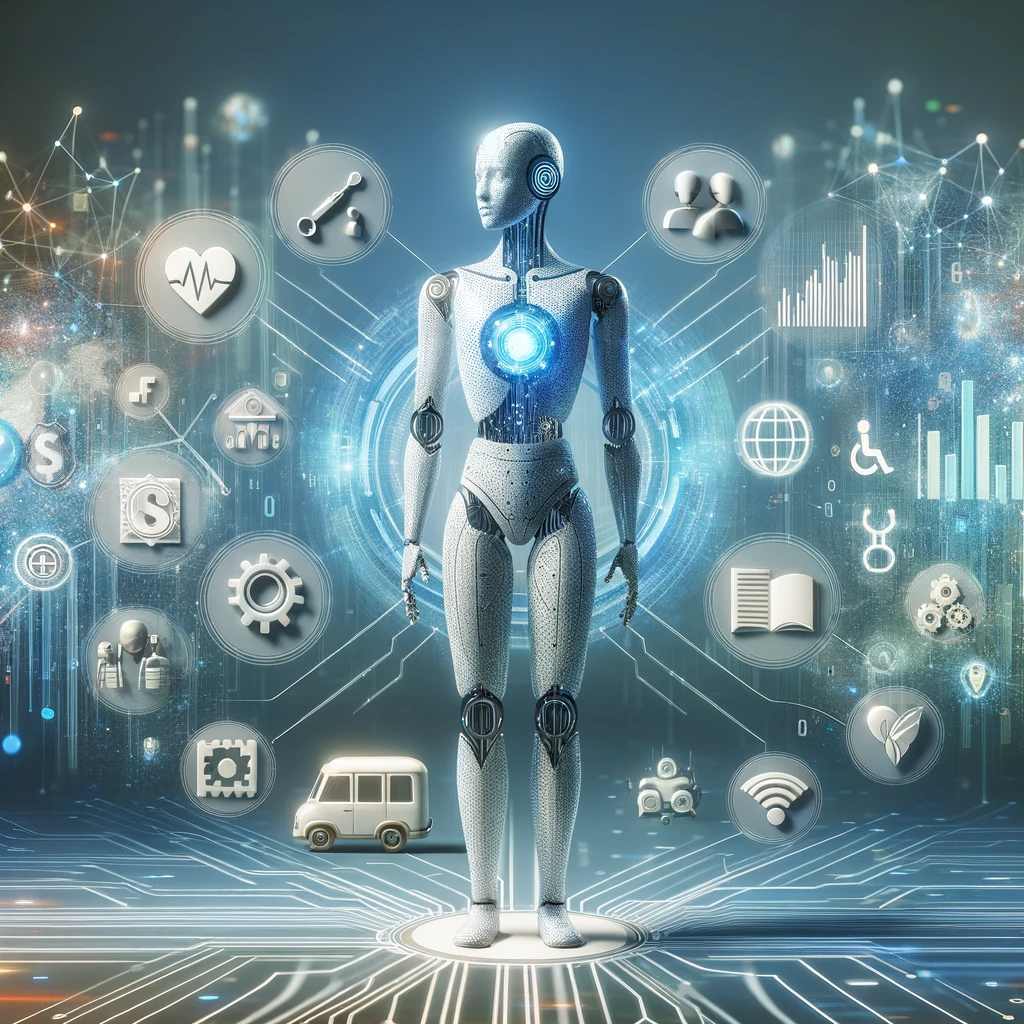Artificial Intelligence (AI) represents a monumental shift in the technological innovation landscape, transforming how we live, work, and interact with the world around us. Its integration across various industries has not only streamlined operations but also opened new realms of possibilities. In this comprehensive exploration, we delve into the intricate workings, significance, and future trajectory of AI.
Understanding the Mechanisms of Artificial Intelligence
AI simulates human cognitive processes through advanced algorithms and machine learning techniques. The cornerstone of AI is its ability to process and analyze vast datasets, uncovering patterns and correlations that inform future predictions and decisions. This capability enables AI systems to perform various complex tasks, from engaging in natural language conversations to accurately identifying objects in images.
Key Programming Languages in Artificial Intelligence
The development of Artificial Intelligence systems often involves languages like Python, R, Java, C++, and Julia, each offering unique features that cater to the nuanced needs of AI programming. These languages facilitate the creation of sophisticated algorithms essential for learning, reasoning, self-correction, and creativity.
The Vital Role of Artificial Intelligence in Modern Society
AI’s influence is far-reaching, impacting numerous sectors with its ability to automate tasks, analyze data, and provide previously unattainable insights. AI-driven automation and data processing have revolutionized customer service, fraud detection, and operational efficiency in business. Similarly, AI has shown exceptional prowess in diagnosing diseases and managing patient data, significantly enhancing patient care and outcomes.
Artificial Intelligence in Everyday Applications
AI’s presence is increasingly noticeable in everyday life, from virtual assistants like Siri to self-driving cars. These applications underscore the versatility of AI in adapting to various consumer needs and preferences.
The Advantages and Challenges of Artificial Intelligence
While AI offers numerous benefits, such as efficiency in data-heavy tasks, labor-saving automation, and consistent performance, it also presents challenges. These include the high data processing costs, the need for technical expertise, and ethical concerns like bias in decision-making and the potential impact on employment.
The Dichotomy of Artificial Intelligence: Weak vs. Strong
AI can be categorized into weak (narrow AI) and strong (artificial general intelligence) forms. Weak AI excels in specific tasks, like industrial automation or virtual assistants, while strong AI, still largely theoretical, aims to replicate human cognitive abilities across a wide range of functions.
The Four Types of Artificial Intelligence
As outlined by Arend Hintze, AI can be classified into four types:
Reactive Machines: Task-specific systems with no memory.
Limited Memory: Systems that use past experiences for future decisions.
Theory of Mind: AI that understands emotions and social interactions.
Self-awareness: AI that possesses consciousness. This type remains a concept for the future.
Artificial Intelligence‘s Role in Various Industries
Healthcare
AI revolutionizes healthcare by enabling faster, more accurate diagnoses and personalized treatment plans. It’s also playing a crucial role in managing pandemics like COVID-19.
Business and Finance
AI-driven analytics and CRM systems are transforming customer service, while in finance, AI is streamlining transactions and investment strategies.
Education
AI is reshaping education by automating grading and providing personalized learning experiences. It’s also prompting a reevaluation of traditional teaching methods in the face of advanced AI tools.
Law and Security
In the legal sector, AI aids in document analysis and predictive modeling. In security, AI enhances threat detection and cybersecurity measures.
Manufacturing and Transportation
AI-driven robotics are central to modern manufacturing, improving efficiency and safety. In transportation, AI is critical in developing autonomous vehicles and optimizing traffic management.
The Future of AI: Prospects and Considerations
As AI continues to evolve, it’s expected to unlock new business opportunities and enhance human capabilities. However, addressing the ethical and societal implications is crucial, ensuring AI’s development is aligned with human values and welfare.
Wrap Up
AI’s trajectory is not just about technological advancement; it’s about integrating this powerful tool responsibly into our societies and lives, ensuring it serves the greater good while navigating the complexities it brings.

Leave a Reply